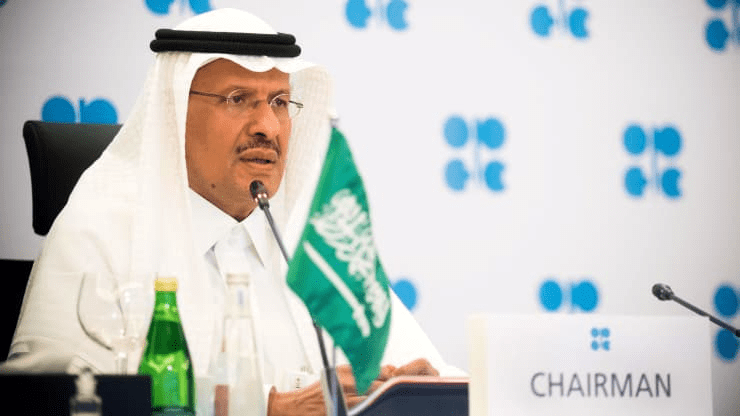Deadlocked on oil production cuts, OPEC and its allies resume talks
December 03, 2020 @ 20:55 +03:00
OPEC and non-OPEC allies resumed talks on Thursday to iron out oil production policy for next year, seeking to build consensus over how to tackle weak demand amid a new wave of coronavirus cases.
OPEC and its partners, known collectively as OPEC+, are widely expected to extend oil production cuts of 7.7 million barrels per day through to at least March. However, talks were suspended on Tuesday after it became clear they had been unable to reach a compromise.
International benchmark Brent crude futures traded at $48.30 a barrel, or about 0.1% higher, while U.S. West Texas Intermediate futures stood at $45.22, down 0.1% for the session.
Both price contracts snapped a multiday losing streak in the previous session, closing higher on encouraging Covid-19 vaccine news. Oil prices remain more than 25% lower year to date.
In April, after days of protracted talks, OPEC+ agreed to the largest single output cut in history. The record cut of 9.7 million barrels per day started on May 1 but was subsequently scaled back to 7.7 million in August, and OPEC+ has said it plans further tapering next year.
OPEC kingpin Saudi Arabia is thought to be the main advocate of keeping the current level of cuts in place until the end of the first quarter. However, some producers have questioned this approach following a sustained rally in oil prices last month.
Analysts believe some non-OPEC allies, such as Russian and Kazakhstan, have been calling for a gradual increase to production curbs, whereas the United Arab Emirates has ostensibly been pushing for a strategy designed to improve compliance from overproducing countries.
Speculation of a rift between Saudi Arabia and the UAE earlier this week came as a surprise to some because of the UAE’s stature within OPEC. It is the group’s third-biggest producer and a close Gulf ally of Saudi Arabia.
Russia and nine other non-OPEC countries have been working with the 13-member group to prop up oil prices in recent years. The group exerts considerable influence over world energy markets, although it is no longer seen as the force it once was.
In recent months, OPEC+ has sought to navigate its way through a historically tumultuous period, including an unparalleled collapse in oil prices, a massive fuel demand shock amid the coronavirus crisis, a Saudi-Russia price war and Qatar’s departure from OPEC.
Deadlocked on oil production cuts, OPEC and its allies resume talks, CNBC, Dec 3








